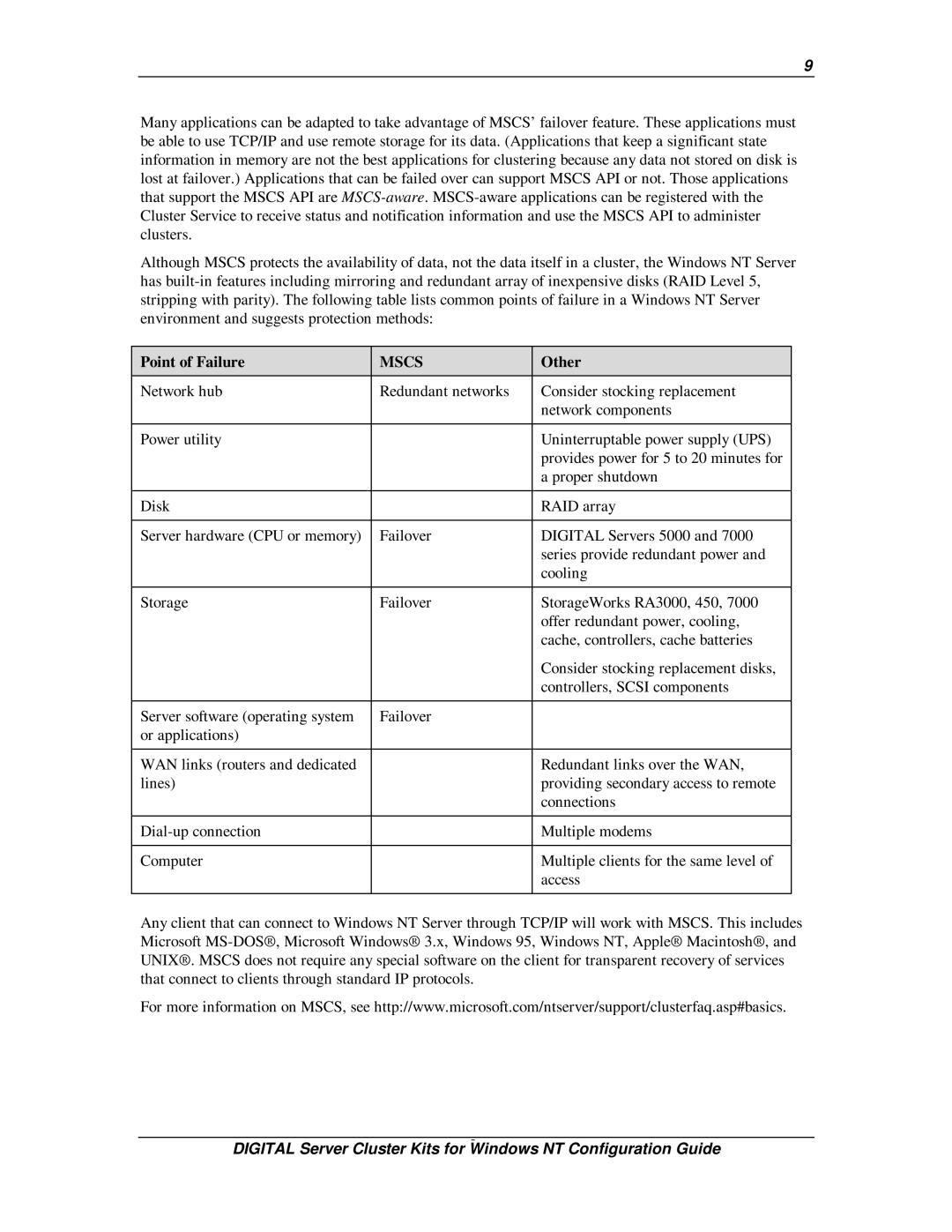
9
Many applications can be adapted to take advantage of MSCS’failover feature. These applications must be able to use TCP/IP and use remote storage for its data. (Applications that keep a significant state information in memory are not the best applications for clustering because any data not stored on disk is lost at failover.) Applications that can be failed over can support MSCS API or not. Those applications that support the MSCS API are
Although MSCS protects the availability of data, not the data itself in a cluster, the Windows NT Server has
Point of Failure | MSCS | Other |
|
|
|
Network hub | Redundant networks | Consider stocking replacement |
|
| network components |
|
|
|
Power utility |
| Uninterruptable power supply (UPS) |
|
| provides power for 5 to 20 minutes for |
|
| a proper shutdown |
|
|
|
Disk |
| RAID array |
|
|
|
Server hardware (CPU or memory) | Failover | DIGITAL Servers 5000 and 7000 |
|
| series provide redundant power and |
|
| cooling |
|
|
|
Storage | Failover | StorageWorks RA3000, 450, 7000 |
|
| offer redundant power, cooling, |
|
| cache, controllers, cache batteries |
|
| Consider stocking replacement disks, |
|
| controllers, SCSI components |
|
|
|
Server software (operating system | Failover |
|
or applications) |
|
|
|
|
|
WAN links (routers and dedicated |
| Redundant links over the WAN, |
lines) |
| providing secondary access to remote |
|
| connections |
|
|
|
| Multiple modems | |
|
|
|
Computer |
| Multiple clients for the same level of |
|
| access |
|
|
|
Any client that can connect to Windows NT Server through TCP/IP will work with MSCS. This includes Microsoft
For more information on MSCS, see http://www.microsoft.com/ntserver/support/clusterfaq.asp#basics.
-
DIGITAL Server Cluster Kits for Windows NT Configuration Guide
